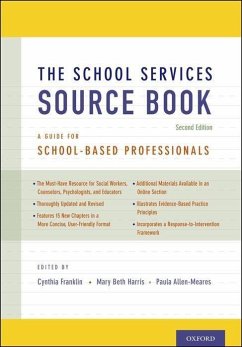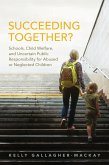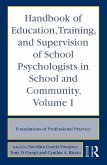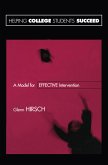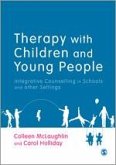The School Services Sourcebook, Second Edition
A Guide for School-Based Professionals
Herausgeber: Franklin, Cynthia; Allen-Meares, Paula; Harris, Mary Beth
The School Services Sourcebook, Second Edition
A Guide for School-Based Professionals
Herausgeber: Franklin, Cynthia; Allen-Meares, Paula; Harris, Mary Beth
- Gebundenes Buch
- Merkliste
- Auf die Merkliste
- Bewerten Bewerten
- Teilen
- Produkt teilen
- Produkterinnerung
- Produkterinnerung
A state-of-the-art revision of the sourcebook that is a must-have for all school-based social workers, counselors, and mental health professionals.
Andere Kunden interessierten sich auch für
![Pet Loss and Human Emotion, second edition Pet Loss and Human Emotion, second edition]() Cheri Barton RossPet Loss and Human Emotion, second edition170,99 €
Cheri Barton RossPet Loss and Human Emotion, second edition170,99 €![Succeeding Together? Succeeding Together?]() Kelly Gallagher-MackaySucceeding Together?79,99 €
Kelly Gallagher-MackaySucceeding Together?79,99 €![Handbook of Education, Training, and Supervision of School Psychologists in School and Community, Volume I Handbook of Education, Training, and Supervision of School Psychologists in School and Community, Volume I]() Handbook of Education, Training, and Supervision of School Psychologists in School and Community, Volume I34,99 €
Handbook of Education, Training, and Supervision of School Psychologists in School and Community, Volume I34,99 €![Social Workers Desk Reference 4th Edition Social Workers Desk Reference 4th Edition]() Lisa Rapp-McCallSocial Workers Desk Reference 4th Edition186,99 €
Lisa Rapp-McCallSocial Workers Desk Reference 4th Edition186,99 €![Multicultural Play Therapy Multicultural Play Therapy]() Multicultural Play Therapy191,99 €
Multicultural Play Therapy191,99 €![Helping College Students Succeed Helping College Students Succeed]() Glenn HirschHelping College Students Succeed170,99 €
Glenn HirschHelping College Students Succeed170,99 €![Therapy with Children and Young People Therapy with Children and Young People]() Colleen MclaughlinTherapy with Children and Young People168,99 €
Colleen MclaughlinTherapy with Children and Young People168,99 €-
-
-
A state-of-the-art revision of the sourcebook that is a must-have for all school-based social workers, counselors, and mental health professionals.
Hinweis: Dieser Artikel kann nur an eine deutsche Lieferadresse ausgeliefert werden.
Hinweis: Dieser Artikel kann nur an eine deutsche Lieferadresse ausgeliefert werden.
Produktdetails
- Produktdetails
- Verlag: Hurst & Co.
- 2nd Revised edition
- Seitenzahl: 1008
- Erscheinungstermin: 26. Dezember 2012
- Englisch
- Abmessung: 254mm x 183mm x 51mm
- Gewicht: 1905g
- ISBN-13: 9780199861750
- ISBN-10: 0199861757
- Artikelnr.: 36077341
- Herstellerkennzeichnung
- Libri GmbH
- Europaallee 1
- 36244 Bad Hersfeld
- gpsr@libri.de
- Verlag: Hurst & Co.
- 2nd Revised edition
- Seitenzahl: 1008
- Erscheinungstermin: 26. Dezember 2012
- Englisch
- Abmessung: 254mm x 183mm x 51mm
- Gewicht: 1905g
- ISBN-13: 9780199861750
- ISBN-10: 0199861757
- Artikelnr.: 36077341
- Herstellerkennzeichnung
- Libri GmbH
- Europaallee 1
- 36244 Bad Hersfeld
- gpsr@libri.de
Cynthia Franklin, PhD, is Stiernberg/Spencer Family Professor in Mental Health and Coordinator of Clinical Social Work Concentration at the University of Texas at Austin. Mary Beth Harris, PhD, is Clinical Associate Professor of Social Work at the University of Southern California. Paula Allen-Meares, PhD, is Chancellor of the University of Illinois at Chicago and Professor and Dean Emeritus, University of Michigan School of Social Work.
* PART I: Resources for Improving Student Support Services
* SECTION I: Methods and Frameworks for Improving School Services
* 1 Implementing Evidence-based practices within a Response to
Intervention Framework
* Michael S. Kelly
* 2 Effective Methods for Improving School Climate
* Beth Gerlach
* Laura Hopson
* 3 Functional Behavioral Assessment in a Three-Tiered Prevention Model
* Kevin J. Filter
* Michelle E. Alvarez
* Kimberly A. Zammitt
* 4 Ethical Decision Making in School Mental Health
* James Raines
* Nic Dibble
* PART II: Resources for Helping Students with Diagnosed Mental Health,
Developmental, and Physical Disorders
* SECTION II: Effective Services for Students with Mental Health
Diagnoses
* 5 Psychopharmacological Treatment for Child and Adolescent Mental
Disorders
* Kia J. Bentley
* Kathryn S. Collins
* 6 Effective Interventions for Students with Conduct Disorder
* David W. Springer
* Courtney Lynch
* Katherine L. Montgomery
* 7 Effective Interventions for Youths with Oppositional Defiant
Disorder
* Tammy Linseisen
* 8 Effective Interventions for Students with Separation Anxiety
Disorder
* Hayley Sacks
* Jonathan S. Comer
* Donna B. Pincus
* Marilyn Camacho
* Lisa Hunter-Romanelli
* 9 Effective Interventions for Youths with Obsessive-Compulsive
Disorder
* Jonathan S. Comer
* Meghan Tomb
* Lisa Hunter-Romanelli
* 10 Effective Interventions for Adolescents with Depression
* Jacqueline Corcoran
* Jane Hanvey -Phillips
* 11 Collaborative Strengths-Based Brief Therapy with Self-Harming
Students
* Matthew Selekman
* 12 Positive Behavior Supports for Children with Major Mental Illness:
Working with Teachers and Parents
* Chris Ahlman
* 13 Effective Interventions for Students with Eating Disorders
* Theresa Early
* Hilary Drew
* SECTION III: Effective Interventions for Students with
Neurodevelopmental, Learning, and Physical Disorders
* 14 Effective Interventions for Students with ADHD
* Martell Teasley
* 15 Effective Interventions for Students with Autism and Asperger's
Syndrome
* Michelle S. Ballan
* Lauren Z. Powledge
* Karen F. Hoban
* 16 Working with Students with Intellectual Disabilities who Exhibit
Severe Challenging Behavior
* Mark O'Reilly
* Vanessa A. Green
* Jeff Sigafoos
* Giulio Lancioni
* Helen Malone
* Chaturi Edrisinha
* Christina Fragale
* Russell Lang
* Farah El Zein
* 17 Improving the Self-Esteem and Social Skills of Students with
Learning Disabilities
* James Raines
* 18 Effective Classroom Interventions for Students with Physical
Disabilities
* Anna G. Escamilla
* 19 Suicide and Suicidal Ideation among Individuals Diagnosed with an
Autism Spectrum Disorder
* Oren Shtayermman
* PART III: Resources for Students with Substance Abuse, Health, and
Interpersonal and Social Problems
* SECTION IV: Effective Ways to Help Students with Substance abuse,
STD's and Obesity
* 20 Substance Abuse at Elementary Age: Effective Interventions
* Lori K. Holleran-Steiker
* Soyon Jung
* Kristy Gillispie
* 21 Screening Substance Use/Abuse of Middle and High School Students
* Lori K. Holleran-Steiker
* Soyon Jung
* Kristy Gillispie
* 22 Best Practices for Prevention of STDs and HIV in Schools
* Laura M. Hopson
* 23 Effective Management of Obesity for School Children
* Reshma B. Naidoo
* SECTION V: Effective Approaches for Students experiencing Abuse,
Foster Care and Juvenile Justice Issues
* 24 Identifying Child Abuse or Neglect Strategies in a School Setting
* Ernst O. VanBergeijk
* 25 Helping Students Who Have Been Physically or Sexually Abused:
Strategies and Interventions
* Kathleen Coulborn Faller
* 26 Helping Children in Foster Care and Other Residential Placements
Succeed in School
* Dorian E. Traube
* Mary M. McKernan McKay
* 27 Connecting School-Based Practices and Juvenile Justice
* Katherine L. Montgomery
* Karen Knox
* Albert R. Roberts
* SECTION VI: Improving School Engagement, Attendance, and Dropout
Prevention
* 28 Effective Approaches to School Engagement
* Jade Wexler
* Nicole Pyle
* 29 Increasing School Attendance: Effective Strategies and
Interventions
* Johnny S. Kim
* Calvin L. Streeter
* 30 Guides for Designing and Establishing Alternative School Programs
for Dropout Prevention
* Cynthia Franklin
* Laura Hopson
* David R. Dupper
* 31 Solution-Focused, Brief Therapy Interventions for Students at Risk
to Drop Out
* Cynthia Franklin
* Johnny S. Kim
* Stephen J. Tripodi
* 32 Primary Prevention of Pregnancy: Effective School-Based Programs
* Mary Beth Harris
* 33 Best School-Based Practices with Adolescent Parents
* Mary Beth Harris
* SECTION VII: Effective Approaches for Violence, Bullying and Conflict
Resolution, Sexual Assault, and Gangs
* 34 Evidence-Based Violence Prevention Programs and Best
Implementation Practices
* Roxana Marachi
* Ron Avi Astor
* Rami Benbenishty
* 35 Bullying: Best Practices for Prevention and Intervention in
Schools
* Esther Howe
* Jessica Wright Marini
* Elayne Haymes
* Tanya Tenor
* 36 Effective Peer Conflict Resolution
* Debra J. Woody
* 37 Improving Classroom Conflict management through Positive Behavior
Supports
* Aaron Thompson
* 38 Acquaintance Sexual Assault and Sexual Harassment Treatment and
Prevention Among Teens
* Erin A. Casey
* Paula S. Nurius
* 39 Effective Interventions with Dating Violence and Domestic Violence
* Beverly M. Black
* Arlene N. Weisz
* 40 Effective Intervention with Gangs and Gang Members
* Timotea M. Elizalde
* Gilbert A. Ramirez
* PART IV: Crisis Intervention, Group work, and Parental and Family
Resources
* SECTION VIII: Effective Crisis Intervention Methods
* 41 School-Based, Adolescent Suicidality: Lethality Assessments and
Crisis Intervention Protocols
* Albert R. Roberts
* Karen S. Knox
* Miki Tesh
* 42 Developing School Wide and District Wide Crisis
Prevention/Intervention Protocols for Natural Disasters
* Karen S. Knox
* Tara Powell
* Albert R. Roberts
* 43 Immediate School-Based Intervention Following Violent Crises
* Shane R. Jimerson
* Stephen E. Brock
* Jacqueline A. Brown
* 44 Best Practice Grief Work with Students in the Schools
* Linda Goldman
* SECTION IX: Improving Group Work and Training Resources
* 45 Designing and Facilitating Support Groups and Therapy Groups with
Adolescents: Importance of the Topic for Schools
* Charles Garvin
* 46 Designing and Facilitating Groups with Children
* Craig W. LeCroy
* 47 Design and Utility of Life Skills Groups in Schools
* Pam Franzwa
* Louisa Triandis
* Gena Truitt
* 48 Conducting In-Service Training and Continuing Education for Staff
and Teachers
* Brenda Coble Lindsey
* Margaret White
* Wynne S. Korr
* SECTION X: Enhancing Parental Involvement and Family Resources
* 49 Effective Strategies for Involving Parents in Schools
* Hilary Bunting
* Hilary Drew
* Amber Lasseigne
* Dawn Anderson-Butcher
* 50 What Parents and Teachers Should Know: Effective Treatments for
Youth with ADHD
* Steven W. Evans
* Julie S. Owens
* Carey E. Reinicke
* Ruth C. Brown
* Allen B. Grove
* 51 Effective Intervening with Students from Single-Parent Families
and Their Parents
* Mo Yee Lee
* Cathy Grover Ely
* 52 Working with Families from Religious Fundamentalist Backgrounds
* Jennifer D. Yates
* Allen H. Cole, Jr.
* 53 Intervening with Students and Families who frequently Relocate or
are Homeless
* Sanna J. Thompson
* Tiffany N. Ryan
* Jihye Kim
* 54 Children and Youth Impacted by Military Service: A School-Based
Resilience Building and Behavioral Health Perspective
* Eugenia L. Weiss
* Jose E. Coll
* 55 Effectively Working with Latino Immigrant Families in the Schools
* Eden Hernandez Robles
* Alan J. Dettlaff
* Rowena Fong
* 56 Home Visiting: Essential Guidelines for Home Visits and Engaging
with Families
* Barbara H. Wasik
* Sheena Berry
* Adrienne Villagomez
* Priya Mudholker
* Gary L. Shaffer
* PART V: Improving Multicultural and Community Relationships, School
Accountability, and Resource Development
* SECTION XI: Resources for Multicultural Groups and Diverse
Relationships in the School
* 57 Working with Culturally/Racially Diverse Students to Improve
Connection to School and Academic Performance
* Daphna Oyserman
* 58 Mental Health Interventions with Latino Students in Multicultural
School Environments: A Framework for Assessing Biases and Developing
Cultural Competence
* Katina M. Lambros
* Concepcion Barrio
* 59 Engaging with Culturally and Racially Diverse Families
* Jenell S. Clarke
* Isok Kim
* Michael S. Spencer
* 60 Working with First Nations Students and Families
* Dorie J. Gilbert
* Gail H. Sims
* 61 Multiple Hispanic Cultures: Considerations for Working with
Students and Families
* Jorge Delva
* Laurie M. Carpenter
* Cristina B. Bares
* 62 Working Collaboratively with African American Students, Their
Families, Cultural Networks, and School Environments
* Edith M. Freeman
* 63 Working with Lesbian, Gay, Bisexual, Transgender, Queer, and
Questioning Students
* Diane Elze
* SECTION XII: Resources for Linking the School and Community
* 64 Mapping a School's Resources to Improve Their Use in Preventing
and Ameliorating Problems
* Howard S. Adelman
* Linda Taylor
* 65 Writing a Contract with a Community Agency for a School-Based
Service
* Michelle Alvarez
* Lynn Bye
* 66 Best Practices for Designing and Developing School-Based Health
Centers
* Julia Graham Lear
* 67 Transition Planning for Students with Autism and Other
Intellectual Disabilities
* Paul K. Cavanagh
* Ernst O. VanBergeijk
* SECTION XIII: Accountability and Resource Development
* 68 Using data to communicate with school stakeholders
* Natasha K. Bowen
* 69 Constructing Data Management Systems for Tracking Accountability
* Melissa Jonson-Reid
* 70 Using the School Success Profile to Assess Outcomes
* Gary Bowen
* Danielle C. Swick
* 71 How to Write a Successful Grant and Obtain Business and Foundation
Support
* Allan R. Chavkin
* Nancy F. Chaykin
* 72 Understanding the Current Environment of Public School Funding:
How Student Support Services are Funded
* Jeffrey M. Poirier
* David Osher
* 73 Where do we go from here? Mental Health Workers and the
Implementation of an Evidence-Based Practice
* Paula Allen-Meares
* ONLINE SECTION
* 74 Strategies for Marketing Successful School Mental Health Services
* Christine Anlauf Sabatino
* 75 Confidentiality and Electronic Records
* Jane Allgood
* Marian Mattison
* Mary Ann Overcamp-Martini
* Mo Cuevas
* 76 Best Practices for Practitioner Self-Care
* Srinika Jayaratne
* 77 Helping Schools Meet the Mandates of Federal Policies: No Child
Left Behind and Other Cutting Edge Federal Policies
* Sarah Anne Eckert
* John W. Sipple
* Lauren Banach
* 78 Individuals with Disabilities Education Act: Translating and
Implementing
* Christine Anlauf Sabatino
* Lynn Milgram Mayer
* Elizabeth Timberlake
* 79 Advancing a Positive School Climate for Students, Families and
Staff
* Michael Woolley
* SECTION I: Methods and Frameworks for Improving School Services
* 1 Implementing Evidence-based practices within a Response to
Intervention Framework
* Michael S. Kelly
* 2 Effective Methods for Improving School Climate
* Beth Gerlach
* Laura Hopson
* 3 Functional Behavioral Assessment in a Three-Tiered Prevention Model
* Kevin J. Filter
* Michelle E. Alvarez
* Kimberly A. Zammitt
* 4 Ethical Decision Making in School Mental Health
* James Raines
* Nic Dibble
* PART II: Resources for Helping Students with Diagnosed Mental Health,
Developmental, and Physical Disorders
* SECTION II: Effective Services for Students with Mental Health
Diagnoses
* 5 Psychopharmacological Treatment for Child and Adolescent Mental
Disorders
* Kia J. Bentley
* Kathryn S. Collins
* 6 Effective Interventions for Students with Conduct Disorder
* David W. Springer
* Courtney Lynch
* Katherine L. Montgomery
* 7 Effective Interventions for Youths with Oppositional Defiant
Disorder
* Tammy Linseisen
* 8 Effective Interventions for Students with Separation Anxiety
Disorder
* Hayley Sacks
* Jonathan S. Comer
* Donna B. Pincus
* Marilyn Camacho
* Lisa Hunter-Romanelli
* 9 Effective Interventions for Youths with Obsessive-Compulsive
Disorder
* Jonathan S. Comer
* Meghan Tomb
* Lisa Hunter-Romanelli
* 10 Effective Interventions for Adolescents with Depression
* Jacqueline Corcoran
* Jane Hanvey -Phillips
* 11 Collaborative Strengths-Based Brief Therapy with Self-Harming
Students
* Matthew Selekman
* 12 Positive Behavior Supports for Children with Major Mental Illness:
Working with Teachers and Parents
* Chris Ahlman
* 13 Effective Interventions for Students with Eating Disorders
* Theresa Early
* Hilary Drew
* SECTION III: Effective Interventions for Students with
Neurodevelopmental, Learning, and Physical Disorders
* 14 Effective Interventions for Students with ADHD
* Martell Teasley
* 15 Effective Interventions for Students with Autism and Asperger's
Syndrome
* Michelle S. Ballan
* Lauren Z. Powledge
* Karen F. Hoban
* 16 Working with Students with Intellectual Disabilities who Exhibit
Severe Challenging Behavior
* Mark O'Reilly
* Vanessa A. Green
* Jeff Sigafoos
* Giulio Lancioni
* Helen Malone
* Chaturi Edrisinha
* Christina Fragale
* Russell Lang
* Farah El Zein
* 17 Improving the Self-Esteem and Social Skills of Students with
Learning Disabilities
* James Raines
* 18 Effective Classroom Interventions for Students with Physical
Disabilities
* Anna G. Escamilla
* 19 Suicide and Suicidal Ideation among Individuals Diagnosed with an
Autism Spectrum Disorder
* Oren Shtayermman
* PART III: Resources for Students with Substance Abuse, Health, and
Interpersonal and Social Problems
* SECTION IV: Effective Ways to Help Students with Substance abuse,
STD's and Obesity
* 20 Substance Abuse at Elementary Age: Effective Interventions
* Lori K. Holleran-Steiker
* Soyon Jung
* Kristy Gillispie
* 21 Screening Substance Use/Abuse of Middle and High School Students
* Lori K. Holleran-Steiker
* Soyon Jung
* Kristy Gillispie
* 22 Best Practices for Prevention of STDs and HIV in Schools
* Laura M. Hopson
* 23 Effective Management of Obesity for School Children
* Reshma B. Naidoo
* SECTION V: Effective Approaches for Students experiencing Abuse,
Foster Care and Juvenile Justice Issues
* 24 Identifying Child Abuse or Neglect Strategies in a School Setting
* Ernst O. VanBergeijk
* 25 Helping Students Who Have Been Physically or Sexually Abused:
Strategies and Interventions
* Kathleen Coulborn Faller
* 26 Helping Children in Foster Care and Other Residential Placements
Succeed in School
* Dorian E. Traube
* Mary M. McKernan McKay
* 27 Connecting School-Based Practices and Juvenile Justice
* Katherine L. Montgomery
* Karen Knox
* Albert R. Roberts
* SECTION VI: Improving School Engagement, Attendance, and Dropout
Prevention
* 28 Effective Approaches to School Engagement
* Jade Wexler
* Nicole Pyle
* 29 Increasing School Attendance: Effective Strategies and
Interventions
* Johnny S. Kim
* Calvin L. Streeter
* 30 Guides for Designing and Establishing Alternative School Programs
for Dropout Prevention
* Cynthia Franklin
* Laura Hopson
* David R. Dupper
* 31 Solution-Focused, Brief Therapy Interventions for Students at Risk
to Drop Out
* Cynthia Franklin
* Johnny S. Kim
* Stephen J. Tripodi
* 32 Primary Prevention of Pregnancy: Effective School-Based Programs
* Mary Beth Harris
* 33 Best School-Based Practices with Adolescent Parents
* Mary Beth Harris
* SECTION VII: Effective Approaches for Violence, Bullying and Conflict
Resolution, Sexual Assault, and Gangs
* 34 Evidence-Based Violence Prevention Programs and Best
Implementation Practices
* Roxana Marachi
* Ron Avi Astor
* Rami Benbenishty
* 35 Bullying: Best Practices for Prevention and Intervention in
Schools
* Esther Howe
* Jessica Wright Marini
* Elayne Haymes
* Tanya Tenor
* 36 Effective Peer Conflict Resolution
* Debra J. Woody
* 37 Improving Classroom Conflict management through Positive Behavior
Supports
* Aaron Thompson
* 38 Acquaintance Sexual Assault and Sexual Harassment Treatment and
Prevention Among Teens
* Erin A. Casey
* Paula S. Nurius
* 39 Effective Interventions with Dating Violence and Domestic Violence
* Beverly M. Black
* Arlene N. Weisz
* 40 Effective Intervention with Gangs and Gang Members
* Timotea M. Elizalde
* Gilbert A. Ramirez
* PART IV: Crisis Intervention, Group work, and Parental and Family
Resources
* SECTION VIII: Effective Crisis Intervention Methods
* 41 School-Based, Adolescent Suicidality: Lethality Assessments and
Crisis Intervention Protocols
* Albert R. Roberts
* Karen S. Knox
* Miki Tesh
* 42 Developing School Wide and District Wide Crisis
Prevention/Intervention Protocols for Natural Disasters
* Karen S. Knox
* Tara Powell
* Albert R. Roberts
* 43 Immediate School-Based Intervention Following Violent Crises
* Shane R. Jimerson
* Stephen E. Brock
* Jacqueline A. Brown
* 44 Best Practice Grief Work with Students in the Schools
* Linda Goldman
* SECTION IX: Improving Group Work and Training Resources
* 45 Designing and Facilitating Support Groups and Therapy Groups with
Adolescents: Importance of the Topic for Schools
* Charles Garvin
* 46 Designing and Facilitating Groups with Children
* Craig W. LeCroy
* 47 Design and Utility of Life Skills Groups in Schools
* Pam Franzwa
* Louisa Triandis
* Gena Truitt
* 48 Conducting In-Service Training and Continuing Education for Staff
and Teachers
* Brenda Coble Lindsey
* Margaret White
* Wynne S. Korr
* SECTION X: Enhancing Parental Involvement and Family Resources
* 49 Effective Strategies for Involving Parents in Schools
* Hilary Bunting
* Hilary Drew
* Amber Lasseigne
* Dawn Anderson-Butcher
* 50 What Parents and Teachers Should Know: Effective Treatments for
Youth with ADHD
* Steven W. Evans
* Julie S. Owens
* Carey E. Reinicke
* Ruth C. Brown
* Allen B. Grove
* 51 Effective Intervening with Students from Single-Parent Families
and Their Parents
* Mo Yee Lee
* Cathy Grover Ely
* 52 Working with Families from Religious Fundamentalist Backgrounds
* Jennifer D. Yates
* Allen H. Cole, Jr.
* 53 Intervening with Students and Families who frequently Relocate or
are Homeless
* Sanna J. Thompson
* Tiffany N. Ryan
* Jihye Kim
* 54 Children and Youth Impacted by Military Service: A School-Based
Resilience Building and Behavioral Health Perspective
* Eugenia L. Weiss
* Jose E. Coll
* 55 Effectively Working with Latino Immigrant Families in the Schools
* Eden Hernandez Robles
* Alan J. Dettlaff
* Rowena Fong
* 56 Home Visiting: Essential Guidelines for Home Visits and Engaging
with Families
* Barbara H. Wasik
* Sheena Berry
* Adrienne Villagomez
* Priya Mudholker
* Gary L. Shaffer
* PART V: Improving Multicultural and Community Relationships, School
Accountability, and Resource Development
* SECTION XI: Resources for Multicultural Groups and Diverse
Relationships in the School
* 57 Working with Culturally/Racially Diverse Students to Improve
Connection to School and Academic Performance
* Daphna Oyserman
* 58 Mental Health Interventions with Latino Students in Multicultural
School Environments: A Framework for Assessing Biases and Developing
Cultural Competence
* Katina M. Lambros
* Concepcion Barrio
* 59 Engaging with Culturally and Racially Diverse Families
* Jenell S. Clarke
* Isok Kim
* Michael S. Spencer
* 60 Working with First Nations Students and Families
* Dorie J. Gilbert
* Gail H. Sims
* 61 Multiple Hispanic Cultures: Considerations for Working with
Students and Families
* Jorge Delva
* Laurie M. Carpenter
* Cristina B. Bares
* 62 Working Collaboratively with African American Students, Their
Families, Cultural Networks, and School Environments
* Edith M. Freeman
* 63 Working with Lesbian, Gay, Bisexual, Transgender, Queer, and
Questioning Students
* Diane Elze
* SECTION XII: Resources for Linking the School and Community
* 64 Mapping a School's Resources to Improve Their Use in Preventing
and Ameliorating Problems
* Howard S. Adelman
* Linda Taylor
* 65 Writing a Contract with a Community Agency for a School-Based
Service
* Michelle Alvarez
* Lynn Bye
* 66 Best Practices for Designing and Developing School-Based Health
Centers
* Julia Graham Lear
* 67 Transition Planning for Students with Autism and Other
Intellectual Disabilities
* Paul K. Cavanagh
* Ernst O. VanBergeijk
* SECTION XIII: Accountability and Resource Development
* 68 Using data to communicate with school stakeholders
* Natasha K. Bowen
* 69 Constructing Data Management Systems for Tracking Accountability
* Melissa Jonson-Reid
* 70 Using the School Success Profile to Assess Outcomes
* Gary Bowen
* Danielle C. Swick
* 71 How to Write a Successful Grant and Obtain Business and Foundation
Support
* Allan R. Chavkin
* Nancy F. Chaykin
* 72 Understanding the Current Environment of Public School Funding:
How Student Support Services are Funded
* Jeffrey M. Poirier
* David Osher
* 73 Where do we go from here? Mental Health Workers and the
Implementation of an Evidence-Based Practice
* Paula Allen-Meares
* ONLINE SECTION
* 74 Strategies for Marketing Successful School Mental Health Services
* Christine Anlauf Sabatino
* 75 Confidentiality and Electronic Records
* Jane Allgood
* Marian Mattison
* Mary Ann Overcamp-Martini
* Mo Cuevas
* 76 Best Practices for Practitioner Self-Care
* Srinika Jayaratne
* 77 Helping Schools Meet the Mandates of Federal Policies: No Child
Left Behind and Other Cutting Edge Federal Policies
* Sarah Anne Eckert
* John W. Sipple
* Lauren Banach
* 78 Individuals with Disabilities Education Act: Translating and
Implementing
* Christine Anlauf Sabatino
* Lynn Milgram Mayer
* Elizabeth Timberlake
* 79 Advancing a Positive School Climate for Students, Families and
Staff
* Michael Woolley
* PART I: Resources for Improving Student Support Services
* SECTION I: Methods and Frameworks for Improving School Services
* 1 Implementing Evidence-based practices within a Response to
Intervention Framework
* Michael S. Kelly
* 2 Effective Methods for Improving School Climate
* Beth Gerlach
* Laura Hopson
* 3 Functional Behavioral Assessment in a Three-Tiered Prevention Model
* Kevin J. Filter
* Michelle E. Alvarez
* Kimberly A. Zammitt
* 4 Ethical Decision Making in School Mental Health
* James Raines
* Nic Dibble
* PART II: Resources for Helping Students with Diagnosed Mental Health,
Developmental, and Physical Disorders
* SECTION II: Effective Services for Students with Mental Health
Diagnoses
* 5 Psychopharmacological Treatment for Child and Adolescent Mental
Disorders
* Kia J. Bentley
* Kathryn S. Collins
* 6 Effective Interventions for Students with Conduct Disorder
* David W. Springer
* Courtney Lynch
* Katherine L. Montgomery
* 7 Effective Interventions for Youths with Oppositional Defiant
Disorder
* Tammy Linseisen
* 8 Effective Interventions for Students with Separation Anxiety
Disorder
* Hayley Sacks
* Jonathan S. Comer
* Donna B. Pincus
* Marilyn Camacho
* Lisa Hunter-Romanelli
* 9 Effective Interventions for Youths with Obsessive-Compulsive
Disorder
* Jonathan S. Comer
* Meghan Tomb
* Lisa Hunter-Romanelli
* 10 Effective Interventions for Adolescents with Depression
* Jacqueline Corcoran
* Jane Hanvey -Phillips
* 11 Collaborative Strengths-Based Brief Therapy with Self-Harming
Students
* Matthew Selekman
* 12 Positive Behavior Supports for Children with Major Mental Illness:
Working with Teachers and Parents
* Chris Ahlman
* 13 Effective Interventions for Students with Eating Disorders
* Theresa Early
* Hilary Drew
* SECTION III: Effective Interventions for Students with
Neurodevelopmental, Learning, and Physical Disorders
* 14 Effective Interventions for Students with ADHD
* Martell Teasley
* 15 Effective Interventions for Students with Autism and Asperger's
Syndrome
* Michelle S. Ballan
* Lauren Z. Powledge
* Karen F. Hoban
* 16 Working with Students with Intellectual Disabilities who Exhibit
Severe Challenging Behavior
* Mark O'Reilly
* Vanessa A. Green
* Jeff Sigafoos
* Giulio Lancioni
* Helen Malone
* Chaturi Edrisinha
* Christina Fragale
* Russell Lang
* Farah El Zein
* 17 Improving the Self-Esteem and Social Skills of Students with
Learning Disabilities
* James Raines
* 18 Effective Classroom Interventions for Students with Physical
Disabilities
* Anna G. Escamilla
* 19 Suicide and Suicidal Ideation among Individuals Diagnosed with an
Autism Spectrum Disorder
* Oren Shtayermman
* PART III: Resources for Students with Substance Abuse, Health, and
Interpersonal and Social Problems
* SECTION IV: Effective Ways to Help Students with Substance abuse,
STD's and Obesity
* 20 Substance Abuse at Elementary Age: Effective Interventions
* Lori K. Holleran-Steiker
* Soyon Jung
* Kristy Gillispie
* 21 Screening Substance Use/Abuse of Middle and High School Students
* Lori K. Holleran-Steiker
* Soyon Jung
* Kristy Gillispie
* 22 Best Practices for Prevention of STDs and HIV in Schools
* Laura M. Hopson
* 23 Effective Management of Obesity for School Children
* Reshma B. Naidoo
* SECTION V: Effective Approaches for Students experiencing Abuse,
Foster Care and Juvenile Justice Issues
* 24 Identifying Child Abuse or Neglect Strategies in a School Setting
* Ernst O. VanBergeijk
* 25 Helping Students Who Have Been Physically or Sexually Abused:
Strategies and Interventions
* Kathleen Coulborn Faller
* 26 Helping Children in Foster Care and Other Residential Placements
Succeed in School
* Dorian E. Traube
* Mary M. McKernan McKay
* 27 Connecting School-Based Practices and Juvenile Justice
* Katherine L. Montgomery
* Karen Knox
* Albert R. Roberts
* SECTION VI: Improving School Engagement, Attendance, and Dropout
Prevention
* 28 Effective Approaches to School Engagement
* Jade Wexler
* Nicole Pyle
* 29 Increasing School Attendance: Effective Strategies and
Interventions
* Johnny S. Kim
* Calvin L. Streeter
* 30 Guides for Designing and Establishing Alternative School Programs
for Dropout Prevention
* Cynthia Franklin
* Laura Hopson
* David R. Dupper
* 31 Solution-Focused, Brief Therapy Interventions for Students at Risk
to Drop Out
* Cynthia Franklin
* Johnny S. Kim
* Stephen J. Tripodi
* 32 Primary Prevention of Pregnancy: Effective School-Based Programs
* Mary Beth Harris
* 33 Best School-Based Practices with Adolescent Parents
* Mary Beth Harris
* SECTION VII: Effective Approaches for Violence, Bullying and Conflict
Resolution, Sexual Assault, and Gangs
* 34 Evidence-Based Violence Prevention Programs and Best
Implementation Practices
* Roxana Marachi
* Ron Avi Astor
* Rami Benbenishty
* 35 Bullying: Best Practices for Prevention and Intervention in
Schools
* Esther Howe
* Jessica Wright Marini
* Elayne Haymes
* Tanya Tenor
* 36 Effective Peer Conflict Resolution
* Debra J. Woody
* 37 Improving Classroom Conflict management through Positive Behavior
Supports
* Aaron Thompson
* 38 Acquaintance Sexual Assault and Sexual Harassment Treatment and
Prevention Among Teens
* Erin A. Casey
* Paula S. Nurius
* 39 Effective Interventions with Dating Violence and Domestic Violence
* Beverly M. Black
* Arlene N. Weisz
* 40 Effective Intervention with Gangs and Gang Members
* Timotea M. Elizalde
* Gilbert A. Ramirez
* PART IV: Crisis Intervention, Group work, and Parental and Family
Resources
* SECTION VIII: Effective Crisis Intervention Methods
* 41 School-Based, Adolescent Suicidality: Lethality Assessments and
Crisis Intervention Protocols
* Albert R. Roberts
* Karen S. Knox
* Miki Tesh
* 42 Developing School Wide and District Wide Crisis
Prevention/Intervention Protocols for Natural Disasters
* Karen S. Knox
* Tara Powell
* Albert R. Roberts
* 43 Immediate School-Based Intervention Following Violent Crises
* Shane R. Jimerson
* Stephen E. Brock
* Jacqueline A. Brown
* 44 Best Practice Grief Work with Students in the Schools
* Linda Goldman
* SECTION IX: Improving Group Work and Training Resources
* 45 Designing and Facilitating Support Groups and Therapy Groups with
Adolescents: Importance of the Topic for Schools
* Charles Garvin
* 46 Designing and Facilitating Groups with Children
* Craig W. LeCroy
* 47 Design and Utility of Life Skills Groups in Schools
* Pam Franzwa
* Louisa Triandis
* Gena Truitt
* 48 Conducting In-Service Training and Continuing Education for Staff
and Teachers
* Brenda Coble Lindsey
* Margaret White
* Wynne S. Korr
* SECTION X: Enhancing Parental Involvement and Family Resources
* 49 Effective Strategies for Involving Parents in Schools
* Hilary Bunting
* Hilary Drew
* Amber Lasseigne
* Dawn Anderson-Butcher
* 50 What Parents and Teachers Should Know: Effective Treatments for
Youth with ADHD
* Steven W. Evans
* Julie S. Owens
* Carey E. Reinicke
* Ruth C. Brown
* Allen B. Grove
* 51 Effective Intervening with Students from Single-Parent Families
and Their Parents
* Mo Yee Lee
* Cathy Grover Ely
* 52 Working with Families from Religious Fundamentalist Backgrounds
* Jennifer D. Yates
* Allen H. Cole, Jr.
* 53 Intervening with Students and Families who frequently Relocate or
are Homeless
* Sanna J. Thompson
* Tiffany N. Ryan
* Jihye Kim
* 54 Children and Youth Impacted by Military Service: A School-Based
Resilience Building and Behavioral Health Perspective
* Eugenia L. Weiss
* Jose E. Coll
* 55 Effectively Working with Latino Immigrant Families in the Schools
* Eden Hernandez Robles
* Alan J. Dettlaff
* Rowena Fong
* 56 Home Visiting: Essential Guidelines for Home Visits and Engaging
with Families
* Barbara H. Wasik
* Sheena Berry
* Adrienne Villagomez
* Priya Mudholker
* Gary L. Shaffer
* PART V: Improving Multicultural and Community Relationships, School
Accountability, and Resource Development
* SECTION XI: Resources for Multicultural Groups and Diverse
Relationships in the School
* 57 Working with Culturally/Racially Diverse Students to Improve
Connection to School and Academic Performance
* Daphna Oyserman
* 58 Mental Health Interventions with Latino Students in Multicultural
School Environments: A Framework for Assessing Biases and Developing
Cultural Competence
* Katina M. Lambros
* Concepcion Barrio
* 59 Engaging with Culturally and Racially Diverse Families
* Jenell S. Clarke
* Isok Kim
* Michael S. Spencer
* 60 Working with First Nations Students and Families
* Dorie J. Gilbert
* Gail H. Sims
* 61 Multiple Hispanic Cultures: Considerations for Working with
Students and Families
* Jorge Delva
* Laurie M. Carpenter
* Cristina B. Bares
* 62 Working Collaboratively with African American Students, Their
Families, Cultural Networks, and School Environments
* Edith M. Freeman
* 63 Working with Lesbian, Gay, Bisexual, Transgender, Queer, and
Questioning Students
* Diane Elze
* SECTION XII: Resources for Linking the School and Community
* 64 Mapping a School's Resources to Improve Their Use in Preventing
and Ameliorating Problems
* Howard S. Adelman
* Linda Taylor
* 65 Writing a Contract with a Community Agency for a School-Based
Service
* Michelle Alvarez
* Lynn Bye
* 66 Best Practices for Designing and Developing School-Based Health
Centers
* Julia Graham Lear
* 67 Transition Planning for Students with Autism and Other
Intellectual Disabilities
* Paul K. Cavanagh
* Ernst O. VanBergeijk
* SECTION XIII: Accountability and Resource Development
* 68 Using data to communicate with school stakeholders
* Natasha K. Bowen
* 69 Constructing Data Management Systems for Tracking Accountability
* Melissa Jonson-Reid
* 70 Using the School Success Profile to Assess Outcomes
* Gary Bowen
* Danielle C. Swick
* 71 How to Write a Successful Grant and Obtain Business and Foundation
Support
* Allan R. Chavkin
* Nancy F. Chaykin
* 72 Understanding the Current Environment of Public School Funding:
How Student Support Services are Funded
* Jeffrey M. Poirier
* David Osher
* 73 Where do we go from here? Mental Health Workers and the
Implementation of an Evidence-Based Practice
* Paula Allen-Meares
* ONLINE SECTION
* 74 Strategies for Marketing Successful School Mental Health Services
* Christine Anlauf Sabatino
* 75 Confidentiality and Electronic Records
* Jane Allgood
* Marian Mattison
* Mary Ann Overcamp-Martini
* Mo Cuevas
* 76 Best Practices for Practitioner Self-Care
* Srinika Jayaratne
* 77 Helping Schools Meet the Mandates of Federal Policies: No Child
Left Behind and Other Cutting Edge Federal Policies
* Sarah Anne Eckert
* John W. Sipple
* Lauren Banach
* 78 Individuals with Disabilities Education Act: Translating and
Implementing
* Christine Anlauf Sabatino
* Lynn Milgram Mayer
* Elizabeth Timberlake
* 79 Advancing a Positive School Climate for Students, Families and
Staff
* Michael Woolley
* SECTION I: Methods and Frameworks for Improving School Services
* 1 Implementing Evidence-based practices within a Response to
Intervention Framework
* Michael S. Kelly
* 2 Effective Methods for Improving School Climate
* Beth Gerlach
* Laura Hopson
* 3 Functional Behavioral Assessment in a Three-Tiered Prevention Model
* Kevin J. Filter
* Michelle E. Alvarez
* Kimberly A. Zammitt
* 4 Ethical Decision Making in School Mental Health
* James Raines
* Nic Dibble
* PART II: Resources for Helping Students with Diagnosed Mental Health,
Developmental, and Physical Disorders
* SECTION II: Effective Services for Students with Mental Health
Diagnoses
* 5 Psychopharmacological Treatment for Child and Adolescent Mental
Disorders
* Kia J. Bentley
* Kathryn S. Collins
* 6 Effective Interventions for Students with Conduct Disorder
* David W. Springer
* Courtney Lynch
* Katherine L. Montgomery
* 7 Effective Interventions for Youths with Oppositional Defiant
Disorder
* Tammy Linseisen
* 8 Effective Interventions for Students with Separation Anxiety
Disorder
* Hayley Sacks
* Jonathan S. Comer
* Donna B. Pincus
* Marilyn Camacho
* Lisa Hunter-Romanelli
* 9 Effective Interventions for Youths with Obsessive-Compulsive
Disorder
* Jonathan S. Comer
* Meghan Tomb
* Lisa Hunter-Romanelli
* 10 Effective Interventions for Adolescents with Depression
* Jacqueline Corcoran
* Jane Hanvey -Phillips
* 11 Collaborative Strengths-Based Brief Therapy with Self-Harming
Students
* Matthew Selekman
* 12 Positive Behavior Supports for Children with Major Mental Illness:
Working with Teachers and Parents
* Chris Ahlman
* 13 Effective Interventions for Students with Eating Disorders
* Theresa Early
* Hilary Drew
* SECTION III: Effective Interventions for Students with
Neurodevelopmental, Learning, and Physical Disorders
* 14 Effective Interventions for Students with ADHD
* Martell Teasley
* 15 Effective Interventions for Students with Autism and Asperger's
Syndrome
* Michelle S. Ballan
* Lauren Z. Powledge
* Karen F. Hoban
* 16 Working with Students with Intellectual Disabilities who Exhibit
Severe Challenging Behavior
* Mark O'Reilly
* Vanessa A. Green
* Jeff Sigafoos
* Giulio Lancioni
* Helen Malone
* Chaturi Edrisinha
* Christina Fragale
* Russell Lang
* Farah El Zein
* 17 Improving the Self-Esteem and Social Skills of Students with
Learning Disabilities
* James Raines
* 18 Effective Classroom Interventions for Students with Physical
Disabilities
* Anna G. Escamilla
* 19 Suicide and Suicidal Ideation among Individuals Diagnosed with an
Autism Spectrum Disorder
* Oren Shtayermman
* PART III: Resources for Students with Substance Abuse, Health, and
Interpersonal and Social Problems
* SECTION IV: Effective Ways to Help Students with Substance abuse,
STD's and Obesity
* 20 Substance Abuse at Elementary Age: Effective Interventions
* Lori K. Holleran-Steiker
* Soyon Jung
* Kristy Gillispie
* 21 Screening Substance Use/Abuse of Middle and High School Students
* Lori K. Holleran-Steiker
* Soyon Jung
* Kristy Gillispie
* 22 Best Practices for Prevention of STDs and HIV in Schools
* Laura M. Hopson
* 23 Effective Management of Obesity for School Children
* Reshma B. Naidoo
* SECTION V: Effective Approaches for Students experiencing Abuse,
Foster Care and Juvenile Justice Issues
* 24 Identifying Child Abuse or Neglect Strategies in a School Setting
* Ernst O. VanBergeijk
* 25 Helping Students Who Have Been Physically or Sexually Abused:
Strategies and Interventions
* Kathleen Coulborn Faller
* 26 Helping Children in Foster Care and Other Residential Placements
Succeed in School
* Dorian E. Traube
* Mary M. McKernan McKay
* 27 Connecting School-Based Practices and Juvenile Justice
* Katherine L. Montgomery
* Karen Knox
* Albert R. Roberts
* SECTION VI: Improving School Engagement, Attendance, and Dropout
Prevention
* 28 Effective Approaches to School Engagement
* Jade Wexler
* Nicole Pyle
* 29 Increasing School Attendance: Effective Strategies and
Interventions
* Johnny S. Kim
* Calvin L. Streeter
* 30 Guides for Designing and Establishing Alternative School Programs
for Dropout Prevention
* Cynthia Franklin
* Laura Hopson
* David R. Dupper
* 31 Solution-Focused, Brief Therapy Interventions for Students at Risk
to Drop Out
* Cynthia Franklin
* Johnny S. Kim
* Stephen J. Tripodi
* 32 Primary Prevention of Pregnancy: Effective School-Based Programs
* Mary Beth Harris
* 33 Best School-Based Practices with Adolescent Parents
* Mary Beth Harris
* SECTION VII: Effective Approaches for Violence, Bullying and Conflict
Resolution, Sexual Assault, and Gangs
* 34 Evidence-Based Violence Prevention Programs and Best
Implementation Practices
* Roxana Marachi
* Ron Avi Astor
* Rami Benbenishty
* 35 Bullying: Best Practices for Prevention and Intervention in
Schools
* Esther Howe
* Jessica Wright Marini
* Elayne Haymes
* Tanya Tenor
* 36 Effective Peer Conflict Resolution
* Debra J. Woody
* 37 Improving Classroom Conflict management through Positive Behavior
Supports
* Aaron Thompson
* 38 Acquaintance Sexual Assault and Sexual Harassment Treatment and
Prevention Among Teens
* Erin A. Casey
* Paula S. Nurius
* 39 Effective Interventions with Dating Violence and Domestic Violence
* Beverly M. Black
* Arlene N. Weisz
* 40 Effective Intervention with Gangs and Gang Members
* Timotea M. Elizalde
* Gilbert A. Ramirez
* PART IV: Crisis Intervention, Group work, and Parental and Family
Resources
* SECTION VIII: Effective Crisis Intervention Methods
* 41 School-Based, Adolescent Suicidality: Lethality Assessments and
Crisis Intervention Protocols
* Albert R. Roberts
* Karen S. Knox
* Miki Tesh
* 42 Developing School Wide and District Wide Crisis
Prevention/Intervention Protocols for Natural Disasters
* Karen S. Knox
* Tara Powell
* Albert R. Roberts
* 43 Immediate School-Based Intervention Following Violent Crises
* Shane R. Jimerson
* Stephen E. Brock
* Jacqueline A. Brown
* 44 Best Practice Grief Work with Students in the Schools
* Linda Goldman
* SECTION IX: Improving Group Work and Training Resources
* 45 Designing and Facilitating Support Groups and Therapy Groups with
Adolescents: Importance of the Topic for Schools
* Charles Garvin
* 46 Designing and Facilitating Groups with Children
* Craig W. LeCroy
* 47 Design and Utility of Life Skills Groups in Schools
* Pam Franzwa
* Louisa Triandis
* Gena Truitt
* 48 Conducting In-Service Training and Continuing Education for Staff
and Teachers
* Brenda Coble Lindsey
* Margaret White
* Wynne S. Korr
* SECTION X: Enhancing Parental Involvement and Family Resources
* 49 Effective Strategies for Involving Parents in Schools
* Hilary Bunting
* Hilary Drew
* Amber Lasseigne
* Dawn Anderson-Butcher
* 50 What Parents and Teachers Should Know: Effective Treatments for
Youth with ADHD
* Steven W. Evans
* Julie S. Owens
* Carey E. Reinicke
* Ruth C. Brown
* Allen B. Grove
* 51 Effective Intervening with Students from Single-Parent Families
and Their Parents
* Mo Yee Lee
* Cathy Grover Ely
* 52 Working with Families from Religious Fundamentalist Backgrounds
* Jennifer D. Yates
* Allen H. Cole, Jr.
* 53 Intervening with Students and Families who frequently Relocate or
are Homeless
* Sanna J. Thompson
* Tiffany N. Ryan
* Jihye Kim
* 54 Children and Youth Impacted by Military Service: A School-Based
Resilience Building and Behavioral Health Perspective
* Eugenia L. Weiss
* Jose E. Coll
* 55 Effectively Working with Latino Immigrant Families in the Schools
* Eden Hernandez Robles
* Alan J. Dettlaff
* Rowena Fong
* 56 Home Visiting: Essential Guidelines for Home Visits and Engaging
with Families
* Barbara H. Wasik
* Sheena Berry
* Adrienne Villagomez
* Priya Mudholker
* Gary L. Shaffer
* PART V: Improving Multicultural and Community Relationships, School
Accountability, and Resource Development
* SECTION XI: Resources for Multicultural Groups and Diverse
Relationships in the School
* 57 Working with Culturally/Racially Diverse Students to Improve
Connection to School and Academic Performance
* Daphna Oyserman
* 58 Mental Health Interventions with Latino Students in Multicultural
School Environments: A Framework for Assessing Biases and Developing
Cultural Competence
* Katina M. Lambros
* Concepcion Barrio
* 59 Engaging with Culturally and Racially Diverse Families
* Jenell S. Clarke
* Isok Kim
* Michael S. Spencer
* 60 Working with First Nations Students and Families
* Dorie J. Gilbert
* Gail H. Sims
* 61 Multiple Hispanic Cultures: Considerations for Working with
Students and Families
* Jorge Delva
* Laurie M. Carpenter
* Cristina B. Bares
* 62 Working Collaboratively with African American Students, Their
Families, Cultural Networks, and School Environments
* Edith M. Freeman
* 63 Working with Lesbian, Gay, Bisexual, Transgender, Queer, and
Questioning Students
* Diane Elze
* SECTION XII: Resources for Linking the School and Community
* 64 Mapping a School's Resources to Improve Their Use in Preventing
and Ameliorating Problems
* Howard S. Adelman
* Linda Taylor
* 65 Writing a Contract with a Community Agency for a School-Based
Service
* Michelle Alvarez
* Lynn Bye
* 66 Best Practices for Designing and Developing School-Based Health
Centers
* Julia Graham Lear
* 67 Transition Planning for Students with Autism and Other
Intellectual Disabilities
* Paul K. Cavanagh
* Ernst O. VanBergeijk
* SECTION XIII: Accountability and Resource Development
* 68 Using data to communicate with school stakeholders
* Natasha K. Bowen
* 69 Constructing Data Management Systems for Tracking Accountability
* Melissa Jonson-Reid
* 70 Using the School Success Profile to Assess Outcomes
* Gary Bowen
* Danielle C. Swick
* 71 How to Write a Successful Grant and Obtain Business and Foundation
Support
* Allan R. Chavkin
* Nancy F. Chaykin
* 72 Understanding the Current Environment of Public School Funding:
How Student Support Services are Funded
* Jeffrey M. Poirier
* David Osher
* 73 Where do we go from here? Mental Health Workers and the
Implementation of an Evidence-Based Practice
* Paula Allen-Meares
* ONLINE SECTION
* 74 Strategies for Marketing Successful School Mental Health Services
* Christine Anlauf Sabatino
* 75 Confidentiality and Electronic Records
* Jane Allgood
* Marian Mattison
* Mary Ann Overcamp-Martini
* Mo Cuevas
* 76 Best Practices for Practitioner Self-Care
* Srinika Jayaratne
* 77 Helping Schools Meet the Mandates of Federal Policies: No Child
Left Behind and Other Cutting Edge Federal Policies
* Sarah Anne Eckert
* John W. Sipple
* Lauren Banach
* 78 Individuals with Disabilities Education Act: Translating and
Implementing
* Christine Anlauf Sabatino
* Lynn Milgram Mayer
* Elizabeth Timberlake
* 79 Advancing a Positive School Climate for Students, Families and
Staff
* Michael Woolley

